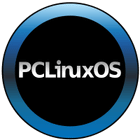
Debian
Open SourceDebian is a free and open-source operating system widely recognized for its stability and powerful package management system. It serves as the foundation for many other Linux distributions, making it a cornerstone of the open-source community. Its commitment to free software principles and extensive hardware support makes it a versatile choice for various computing needs.
Key Features
-
Extremely stable and reliable
-
Excellent package management (APT)
-
Large software repositories



















































